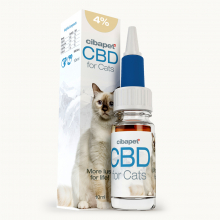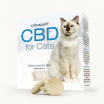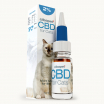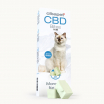Can Cats Have Bad Reactions to CBD?
Published:
Cannabidiol (CBD) has become an increasingly popular supplement for both humans and pets in recent years. But is it safe for cats? Here's what cat owners need to know about potential side effects and safety concerns when giving CBD to felines.
Contents:
- What is CBD?
- Is CBD Safe for Cats?
- Potential Benefits of CBD for Cats
- Potential Side Effects of CBD for Cats
- Are All CBD Products Safe for Cats?
- What’s the Correct CBD Dosage for Cats?
- What is the Best Way to Give CBD to Cats?
- How Long Does it Take for CBD to Work in Cats?
- Are There Any Drug Interactions with CBD for Cats?
- Can I Give My Cat CBD Oil Meant for Humans?
- Can a Cat Overdose on CBD?
- Is CBD Legal for Pets?
- The Bottom Line: Can Cats Have CBD?
- Frequently Asked Questions About CBD Oil For Cats
- What is CBD oil?
- Is CBD oil legal for pets?
- What are the potential benefits of CBD oil for cats?
- What are the side effects of CBD oil in cats?
- What is the correct CBD dosage for cats?
- How do I give CBD oil to my cat?
- How long does CBD oil take to work in cats?
- Can cats overdose on CBD oil?
- When should I talk to my vet about CBD?
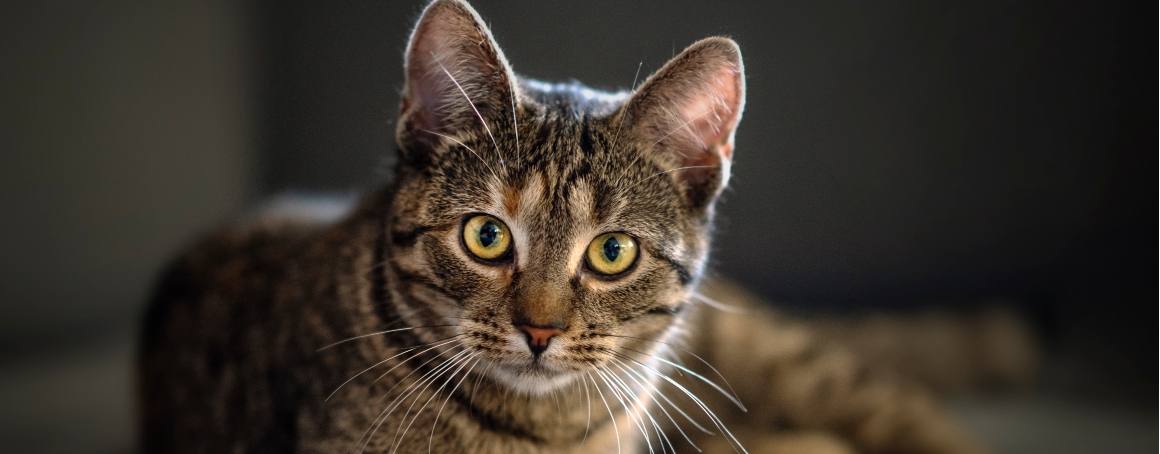
What is CBD?
CBD is one of over 100 chemical compounds known as cannabinoids found in the cannabis plant. Unlike the more well-known cannabinoid THC, CBD is non-intoxicating. This means it does not produce a euphoric “high” effect.
CBD interacts with the body's endocannabinoid system, which helps regulate various functions like sleep, appetite, pain, and immune response. When introduced into the body, CBD can help boost naturally-occurring endocannabinoids.
This makes CBD an appealing natural supplement. Early research suggests it may provide potential health benefits for both humans and animals. This has led to a boom in CBD pet products designed to support overall wellness in pets.
Is CBD Safe for Cats?
Much of the research on CBD has focused on use in humans. But there is limited evidence from veterinary studies suggesting CBD may be generally safe and potentially beneficial for cats.
According to a 2020 review, most studies report CBD appears to be well-tolerated by cats with minor side effects like sedation or gastrointestinal upset.
However, there are still many unknowns around CBD and feline health. The appropriate dosage, potential long-term effects, and drug interactions are still being investigated.
So while CBD shows promise for cats, more research is still needed to better understand its effects in the long run.
Potential Benefits of CBD for Cats
Some of the potential benefits CBD may offer cats include:
- Pain relief - CBD may activate cannabinoid receptors involved in regulating pain and inflammation. A study found CBD reduced pain in cats with osteoarthritis.
- Anti-seizure - CBD may help reduce seizure frequency and intensity. It appears to have anti-convulsant effects.
- Anti-anxiety - CBD may alter serotonin signaling involved in anxiety. It may help calm stressed or anxious cats.
- Appetite stimulation - CBD may activate CB1 receptors that regulate food intake and nausea. This could help stimulate appetite.
- Anti-inflammatory - By reducing inflammation, CBD could aid chronic inflammatory conditions and improve mobility.
- Anti-nausea - CBD may help reduce nausea and vomiting from motion sickness, chemotherapy, or other causes.
While these benefits are promising, more studies confirming CBD's effectiveness for cats are still needed. CBD should not replace any medications or treatments recommended by your vet.
Potential Side Effects of CBD for Cats
CBD is generally well-tolerated by cats, but there can be some potential side effects, especially at high doses. Possible side effects may include:
- Drowsiness or lethargy - CBD can have a sedating effect. It may make some cats tired or unmotivated.
- Diarrhea or vomiting - CBD may cause mild gastrointestinal upset in some cats. It can trigger diarrhea or vomiting.
- Appetite changes - CBD may decrease or increase appetite. Dosage can impact this side effect.
- Dry mouth - CBD may reduce saliva production like it does in people. This can lead to thirst or drooling.
These effects are usually mild, temporary, and resolve on their own once the CBD is stopped or the dose lowered. Starting with a low dose and monitoring your cat can help minimize risk of side effects.
More serious side effects are possible at extremely high doses. Avoid giving your cat CBD products meant for humans, as the higher concentrations can be toxic for pets.
Are All CBD Products Safe for Cats?
Not all CBD products are created equal when it comes to pets. To help avoid adverse effects:
- Use CBD made just for pets - Don't use human CBD products that can have unsuitable ingredients or high concentrations. Choose CBD formulated for cat physiology.
- Avoid THC - THC is toxic for cats. Ensure the product contains absolutely no tetrahydrocannabinol. Cats are extremely sensitive to THC.
- Select organic CBD - Seek organically grown CBD to reduce exposure to pesticides, solvents, or other chemicals used in cultivation.
- Check the label - Confirm the product has been tested by a third-party lab for purity, potency, and safety.
- Choose CO2 extracted oils - CO2 oil extraction is gentler and safer compared to solvent-based extraction methods.
Sticking to quality CBD from reputable brands can help avoid issues. It's also smart to talk to your vet before giving any CBD products to your cat.
What’s the Correct CBD Dosage for Cats?
There are no official dosage guidelines for CBD in cats yet. Experts recommend starting with an extremely small dose and increasing slowly while monitoring effects.
Most cats do well with CBD doses between 0.1 mg to 0.5 mg per kilogram of body weight twice daily. But many factors can influence ideal dosage - weight, age, health issues, medication, etc. Work closely with your vet on tailoring dosage to your cat.
General dosage recommendations based on weight are:
- Up to 4.5 pounds: 0.5 mg to 2 mg total CBD per day
- 4.5 to 10 pounds: 3 mg to 8 mg per day
- Over 10 pounds: 6 mg to 15 mg per day
Start on the very low end of the range. Give CBD with food for 30 days while watching for desired effects or side effects. Adjust dosage very gradually from there if needed. Finding the optimal dose takes patience and persistence.
What is the Best Way to Give CBD to Cats?
CBD oil tinctures designed for pets are the easiest way to give CBD to cats. The oil can easily be measured out and mixed into your cat's wet or dry food.
Other options include:
- CBD pet treats - Available in tasty flavors cats love. But dosage can vary greatly between treats.
- CBD topical products - Applied directly to the skin for more localized effect. May be helpful for arthritis, skin conditions.
- CBD transdermal gels - Absorbed through the skin for systemic effects. Apply to inner ear flap.
- Water soluble CBD powder - Can be mixed into water or wet food. Is absorbed faster.
Always follow package dosing instructions. Monitor your cat for 30 minutes after giving CBD to watch for adverse reactions. Keep CBD out of reach of children and other pets.
How Long Does it Take for CBD to Work in Cats?
It can take some time - even weeks - for CBD's optimal effects to become apparent in cats. Unlike medications, CBD works indirectly by modulating and supporting the endocannabinoid system.
Positive effects are often gradual. It’s important to be patient when first starting CBD and wait 2-4 weeks before increasing the dosage if no changes are observed.
Cats may start to display subtle improvements in mood, appetite, activity levels, inflammation, or pain within 2-4 hours after taking CBD oils or treats. But the effects are progressive and build up over time.
Long term administration of CBD (at least 4 weeks) seems to provide the most benefit versus short term or one-time use. Work closely with your vet on an adequate supplementation trial length.
Are There Any Drug Interactions with CBD for Cats?
CBD can potentially interact with some common veterinary drugs like non-steroidal anti-inflammatory drugs (NSAIDs), immunosuppressants, anti-seizure medications, and sedatives.
CBD inhibits the CYP450 enzyme system involved in metabolizing many drugs. When given with these types of medications, CBD could increase drug levels in the body and side effects.
Always tell your vet about any drugs, supplements, or natural remedies you give your cat - including CBD. They can advise you on potential CBD drug interactions and monitor for any side effects.
It’s best to give CBD apart from other medications by 2-3 hours. Start with a very low dose of CBD when used with any other drugs and monitor carefully. Some cats do fine with CBD and prescription meds together but it's important to be cautious.
Can I Give My Cat CBD Oil Meant for Humans?
No, you should never give your cat CBD oil formulated for human consumption. While the CBD itself is the same, there are often very key differences:
- No pet safety standards - Human CBD products don't have to meet guidelines for pet additives or processing.
- Higher concentrations - Human CBD oils have up to 3000mg CBD per bottle versus 100-500mg/bottle for pets. Too high a dose for cats.
- Additional ingredients - Things like grapeseed oil, xylitol, or vitamin E oil can be safe for people but toxic for cats.
- Lack of regulation - Anyone can produce CBD for human use without oversight. But veterinary CBD must meet strict standards.
- Risk of THC - Human CBD is more likely to have accidental low levels of THC that is unsafe for cats.
Never chance giving your feline CBD oil made for you or other humans. Only purchase CBD formulated specifically for pet consumption to avoid serious side effects.
Can a Cat Overdose on CBD?
While extremely rare, it is possible for cats to overdose on CBD if given an excessively high amount. Symptoms of CBD overdose can include:
- Lethargy or lack of coordination
- Low heart rate or blood pressure
- Hypersalivation
- Heavy sedation
- Agitation or hyperactivity
If you believe your cat has overdosed on CBD, contact your vet or pet poison control right away. Treatment may involve inducing vomiting, giving IV fluids, and managing symptoms.
To help avoid overdose, carefully follow dosage guidelines and monitor your cat closely for the first few hours after giving CBD to check for adverse effects. Store CBD securely out of your cat's reach.
Is CBD Legal for Pets?
In most places, CBD products made from industrial hemp containing less than 0.3% THC are legal. But some states still restrict CBD possession - check your local laws.
The FDA prohibits CBD in food or health products for either humans or pets. But they haven't been enforcing this in light of pending legislation to legalize hemp CBD.
While still a legal gray area, millions of people give CBD to their pets. But you still assume all risks when giving an unapproved product to your cat. Using high quality CBD designed specifically for pets can reduce any legal risks.
The Bottom Line: Can Cats Have CBD?
Current research shows promise that CBD may be generally safe for cats and potentially beneficial for conditions like anxiety, seizures, pain, and more when used correctly. But studies confirming long-term safety and efficacy in pets are still limited.
Potential side effects do exist, especially when using improper dosing or poor quality products. Work closely with your veterinarian on whether CBD is appropriate for your cat and the best protocol for administration and dosing if so.
Frequently Asked Questions About CBD Oil For Cats
What is CBD oil?
CBD stands for cannabidiol, which is a compound found in cannabis plants. CBD oil is an extract from the leaves, stalks, and flowers of hemp plants that contains high amounts of CBD. Unlike marijuana, hemp plants are naturally very low in THC, the psychoactive compound that produces a "high".
CBD oil will not get your cat intoxicated or make them feel "stoned." It interacts with the body's endocannabinoid system to help promote homeostasis and health. CBD is non-addictive and generally considered safe, though more research is still needed.
Is CBD oil legal for pets?
In most states, CBD products made from industrial hemp containing less than 0.3% THC are legal. However, some states still have restrictions, so check your local laws.
While the FDA prohibits CBD in supplements and foods, this regulation is not strongly enforced for pets yet. Giving CBD to your cat may still carry some legal risk, so discussing it with your veterinarian is recommended. Using high quality CBD products formulated specifically for pets can reduce any concerns.
What are the potential benefits of CBD oil for cats?
Research indicates CBD may help provide cats relief for certain conditions by:
- Reducing anxiety
- Controlling seizures
- Alleviating pain and inflammation
- Increasing appetite and controlling nausea
- Fighting viruses, bacteria, and fungi
- Supporting healthy joints and mobility
- Treating skin conditions
- Slowing tumor growth
However, more clinical trials confirming these benefits in cats are still needed. CBD is not a cure-all and should not replace any treatment plans from your veterinarian.
What are the side effects of CBD oil in cats?
CBD is generally well-tolerated but can cause minor side effects like:
- Drowsiness, lethargy
- Dry mouth
- Diarrhea, vomiting
- Appetite changes
These effects are usually temporary and mild. But CBD may interact with certain medications, so checking with your vet is important. Avoid using human CBD oils, as the higher concentrations and ingredients can be dangerous for cats.
What is the correct CBD dosage for cats?
There are no official feline CBD dosage guidelines yet. Experts suggest starting with 0.1-0.5 mg per kg of body weight twice daily. Increase slowly while monitoring effects. Cats may need 1-15 mg total per day depending on their size. Always consult your veterinarian on the ideal dosage for your cat.
How do I give CBD oil to my cat?
The easiest way is CBD oil tinctures designed for pets. They allow precise dosage measurements and can easily be added to your cat's food or treats. Other options include CBD pet treats, transdermal gels, infused lotions, or water soluble powders.
How long does CBD oil take to work in cats?
Effects are usually noticed within 2-4 hours but can take 2-4 weeks for optimal benefit as CBD builds up in the body. Be patient when first starting CBD supplementation and give it time to take effect. Work with your vet on an appropriate treatment schedule.
Can cats overdose on CBD oil?
Overdose is highly unlikely with CBD alone, but can occur at extremely high doses. This causes lethargy, low blood pressure, hypersalivation and other symptoms. Seek veterinary help immediately if you suspect CBD overdose in your cat. Always start with low doses and increase gradually while monitoring your cat.
When should I talk to my vet about CBD?
Discuss CBD with your vet before giving it to your cat, especially if they take any medications or have health conditions. Your vet can help determine if CBD is appropriate and help you find a safe dosage schedule. Give them a full list of any drugs, supplements or natural remedies you give your cat.









